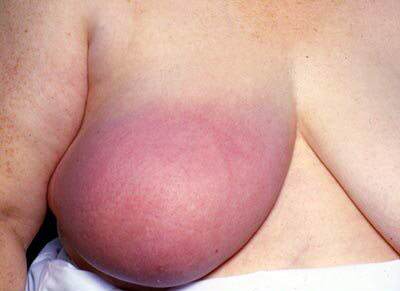Inflammatory breast Cancer (IBC)
- font size decrease font size increase font size
Breast cancer is something that most people especially women really think they know about; look for lumps, have mamograms, visit the doctor for checks, but none of these can save you from IBC. Truth is even most doctors fail in diagnosing it early. How many types of breast cancer do did know? Do you know about IBC?
Inflammatory breast cancer is a rare but very aggressive type of breast cancer in which the cancer cells block the lymph vessels in the skin of the breast.
This type of breast cancer is called “inflammatory” because the breast often looks swollen and red, or “inflamed
Symptoms of IBC may include redness, swelling, and warmth in the breast, often without a distinct lump in the breast. The redness and warmth are caused by cancer cells blocking the lymph vessels in the skin. The skin of the breast may also appear pink, reddish purple, or bruised. The skin may also have ridges or appear pitted, like the skin of an orange (called peau d’orange), which is caused by a buildup of fluid and edema (swelling) in the breast. Other symptoms include heaviness, burning, aching, increase in breast size, tenderness, or a nipple that is inverted (facing inward) (3). These symptoms usually develop quickly—over a period of weeks or months. Swollen lymph nodes may also be present under the arm, above the collarbone, or in both places.
Biopsy, mammogram, and breast ultrasound are used to confirm the diagnosis. IBC is classified as either stage IIIB or stage IV breast cancer (2). Stage IIIB breast cancers are locally advanced; stage IV breast cancer is cancer that has spread to other organs. IBC tends to grow rapidly, and the physical appearance of the breast of patients with IBC is different from that of patients with other stage III breast cancers. IBC is an especially aggressive, locally advanced breast cancer.
Chemotherapy (anticancer drugs) is generally the first treatment for patients with IBC, and is called neoadjuvant therapy. Chemotherapy is systemic treatment, which means that it affects cells throughout the body. The purpose of chemotherapy is to control or kill cancer cells, including those that may have spread to other parts of the body. After chemotherapy, patients with IBC may undergo surgery and radiation therapy to the chest wall. Both radiation and surgery are local treatments that affect only cells in the tumor and the immediately surrounding area.
Source:
My Cancer Advisor
